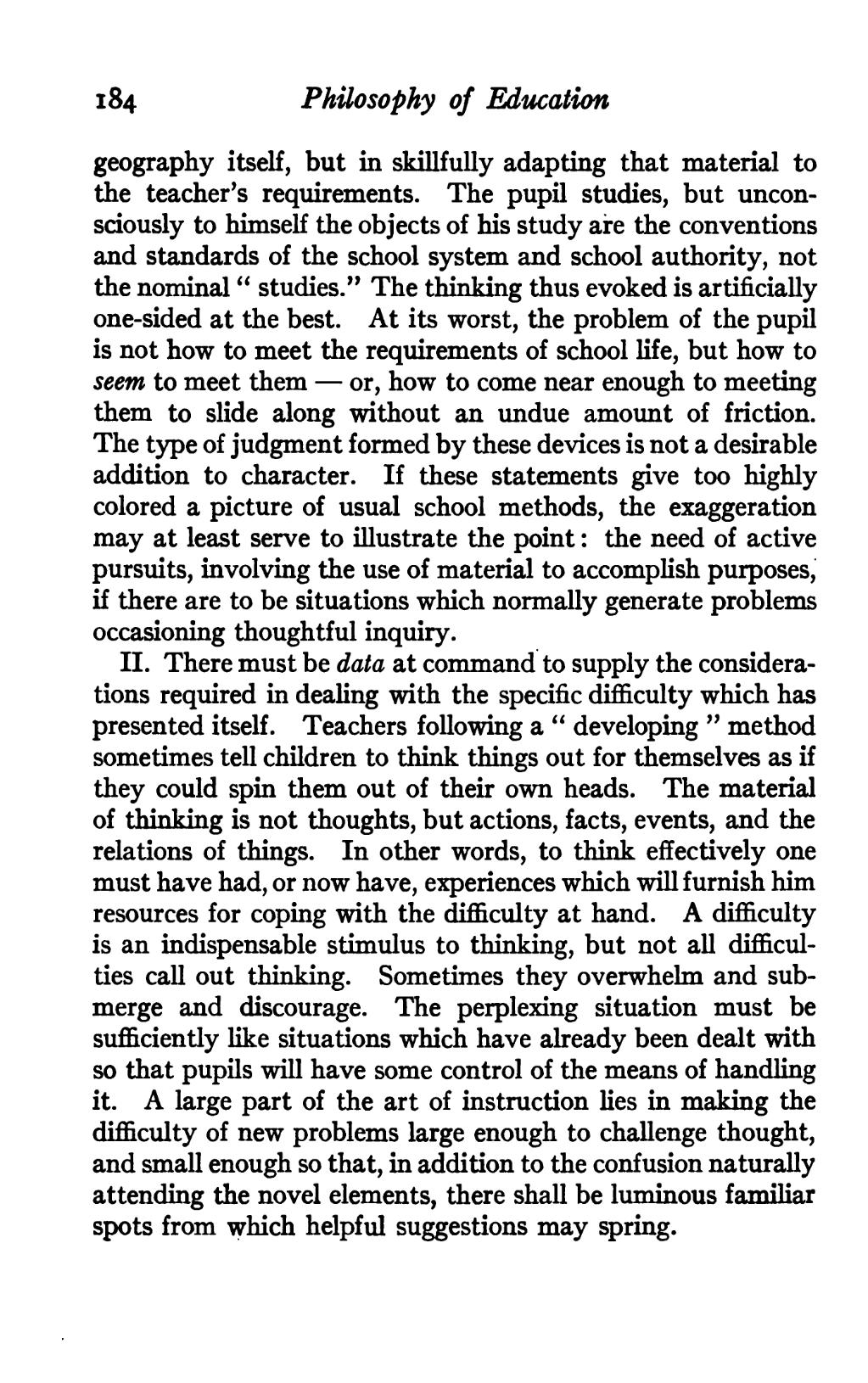geography itself, but in skillfully adapting that material to the teacher's requirements. The pupil studies, but unconsciously to himself the objects of his study are the conventions and standards of the school system and school authority, not the nominal "studies." The thinking thus evoked is artificially one-sided at the best. At its worst, the problem of the pupil is not how to meet the requirements of school life, but how to seem to meet them—or, how to come near enough to meeting them to slide along without an undue amount of friction. The type of judgment formed by these devices is not a desirable addition to character. If these statements give too highly colored a picture of usual school methods, the exaggeration may at least serve to illustrate the point: the need of active pursuits, involving the use of material to accomplish purposes, if there are to be situations which normally generate problems occasioning thoughtful inquiry.
II. There must be data at command to supply the considerations required in dealing with the specific difficulty which has presented itself. Teachers following a "developing" method sometimes tell children to think things out for themselves as if they could spin them out of their own heads. The material of thinking is not thoughts, but actions, facts, events, and the relations of things. In other words, to think effectively one must have had, or now have, experiences which will furnish him resources for coping with the difficulty at hand. A difficulty is an indispensable stimulus to thinking, but not all difficulties call out thinking. Sometimes they overwhelm and submerge and discourage. The perplexing situation must be sufficiently like situations which have already been dealt with so that pupils will have some control of the means of handling it. A large part of the art of instruction lies in making the difficulty of new problems large enough to challenge thought, and small enough so that, in addition to the confusion naturally attending the novel elements, there shall be luminous familiar spots from which helpful suggestions may spring.
